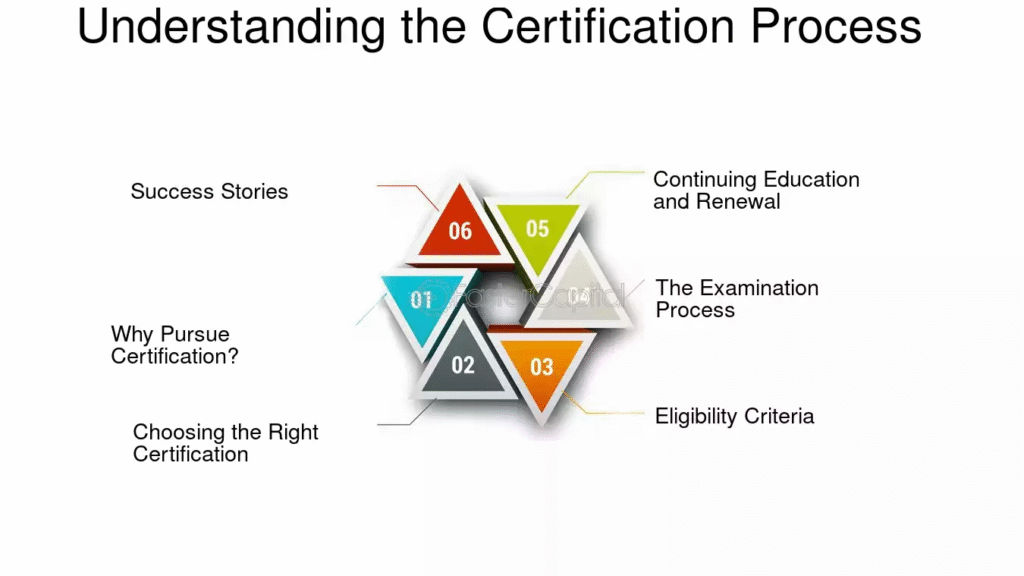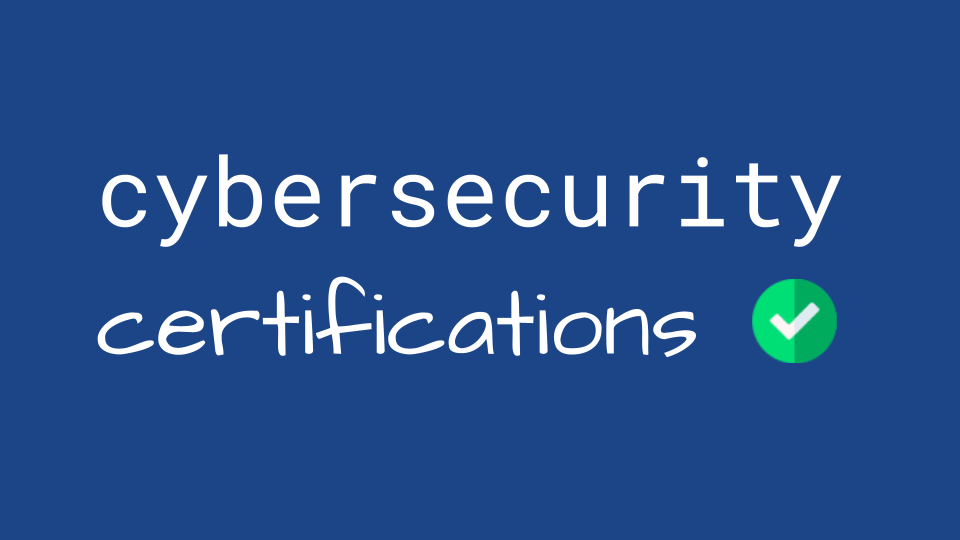Introduction to Cybersecurity Certifications
The rapid advancement of technology and the increasing reliance on digital infrastructures have led to a correspondingly significant rise in cyber threats. As organizations across various sectors continue to adopt digital solutions, the need for skilled cybersecurity professionals has never been more critical. Cybersecurity certifications have emerged as a vital means of validating expertise in this field, establishing benchmarks for knowledge and skillsets required to defend against complex cyber threats.
In today’s digital landscape, the proliferation of cyber attacks has made headlines; from data breaches to ransomware incidents, the consequences of inadequate security measures can be catastrophic for both businesses and individuals. This scenario necessitates qualified professionals who can devise, implement, and maintain robust cybersecurity strategies. Certifications, therefore, serve not only as a mark of credibility but also signify a commitment to staying abreast of the evolving nature of cybersecurity threats.
Obtaining relevant cybersecurity certifications can greatly enhance a professional’s career prospects. These credentials demonstrate not only technical competency but also a dedication to continuous learning, which is essential given the fast-paced evolution of cyber threats. Employers often look for candidates with certifications as they serve as an assurance of a thorough understanding of essential concepts and practices. Popular certifications include Certified Information Systems Security Professional (CISSP), Certified Ethical Hacker (CEH), and CompTIA Security+, among others; each offering distinct value in terms of knowledge and skill validation.
Overall, the world of cybersecurity certifications is expansive and multifaceted, remaining a vital aspect of career advancement in information security. By pursuing these credentials, professionals can position themselves as qualified candidates capable of not only addressing current cybersecurity challenges but also anticipating future developments in this dynamic environment.
Types of Cybersecurity Certifications
In the rapidly expanding field of cybersecurity, various certifications have emerged to cater to different levels of expertise and specialization. These certifications can generally be categorized into three main tiers: entry-level, intermediate, and advanced. Each category serves distinct purposes, targeting individuals at different stages of their careers, and focusing on diverse aspects of cybersecurity.
Entry-level certifications are typically designed for those who are beginning their careers in cybersecurity. An example is the CompTIA Security+, which covers fundamental principles of cybersecurity including network security, compliance, and operational security. This certification serves as a solid foundation for newcomers, providing an understanding of subjects critical to protecting information systems and networks.
Moving up the ladder, intermediate certifications are aimed at individuals with some experience in the field. The Certified Ethical Hacker (CEH) certification is a popular choice within this category. It focuses on ethical hacking techniques and methodologies, empowering professionals to identify vulnerabilities and mitigate threats effectively. These certifications often require a solid understanding of networking and related concepts.
At the advanced level, certifications such as the Certified Information Systems Security Professional (CISSP) come into play. These are designed for seasoned professionals who are responsible for designing, implementing, and managing an organization’s cybersecurity strategy. The CISSP certification covers a broad spectrum of topics, including security and risk management, asset security, and software development security, catering to those in leadership roles with comprehensive cybersecurity knowledge.
In addition to the above, several organizations offer specialized certifications focusing on specific areas such as network security and information assurance, allowing professionals to hone their skills further. Choosing the right certification depends on one’s career goals, existing skill set, and areas of interest within the extensive field of cybersecurity.
Benefits of Obtaining Cybersecurity Certifications
In an era where digital threats are becoming increasingly sophisticated, obtaining cybersecurity certifications can significantly enhance one’s professional standing within the industry. These credentials serve as a testament to an individual’s proficiency in safeguarding information systems, thereby increasing job prospects fundamentally. Employers often prioritize candidates with recognized certifications, as they reflect a commitment to maintaining a high standard of knowledge and skills. This is particularly pertinent given the growing demand for cybersecurity professionals in various sectors, from finance to healthcare.
Moreover, cybersecurity certifications can lead to better salaries and promotions. Certified professionals are often able to negotiate higher compensation packages due to their advanced expertise. Employers understand that certified individuals bring a level of competence that reduces the risk of cyber incidents, making them valuable assets to any organization. Studies show that certified professionals tend to earn significantly more than their non-certified counterparts, thereby reinforcing the financial benefits of pursuing these qualifications.
Credibility is another critical advantage of obtaining cybersecurity certifications. Clients and employers are more likely to trust professionals who have demonstrated their skills through certification programs. These designations can enhance one’s professional reputation, fostering better relationships with clients and stakeholders. Additionally, certifications often require ongoing education and skills assessments, ensuring that professionals remain current with the latest cybersecurity trends and techniques. This commitment to lifelong learning is essential in a field that evolves rapidly.
In a competitive job market, possessing relevant certifications can differentiate candidates from their peers. As organizations increasingly prioritize cybersecurity frameworks, having credentials can highlight one’s readiness to tackle emerging challenges. By establishing credibility and showcasing expertise, cybersecurity certifications can be instrumental in advancing one’s career in a digital world.
Understanding the Certification Process

Obtaining cybersecurity certifications is a critical step towards advancing one’s career in the ever-evolving digital landscape. The certification process typically begins with assessing the prerequisites, which often vary by certification type. Most foundational certifications, such as CompTIA Security+, require candidates to have basic IT knowledge, while more advanced certifications, like Certified Information Systems Security Professional (CISSP), necessitate several years of professional experience.
Preparation strategies play a pivotal role in successfully acquiring a cybersecurity certification. Candidates often utilize a combination of study materials, including textbooks, online courses, and practice exams. Resources such as the Official (ISC)² CISSP Study Guide, available on various platforms, provide a comprehensive overview of topics covered on the exam, ensuring candidates are well-prepared. Additionally, enrolling in instructor-led courses or workshops can enhance understanding through interactive learning. Many reputable organizations offer training programs that complement self-study efforts and help streamline the preparation process.
Moreover, hands-on experience is invaluable in the realm of cybersecurity. Engaging in labs, simulations, and real-world scenarios allows candidates to apply theoretical knowledge in practical settings. This hands-on approach not only solidifies learning but also boosts confidence before confronting certification exams. Many certifications emphasize the practical application of skills, thus reinforcing the idea that theoretical knowledge paired with practical experience is essential for success.
Cost considerations are an integral aspect of the certification journey. Exam fees can vary significantly depending on the certification body, with some certifications costing several hundred dollars. Additionally, candidates should factor in the costs of study materials and preparatory courses. However, various financial aid options and scholarships are available, which can alleviate the financial burden and make obtaining a cybersecurity certification more attainable for aspiring professionals.
Top Cybersecurity Certifications for Professionals
In today’s rapidly evolving digital landscape, obtaining cybersecurity certifications is essential for professionals eager to advance their careers. This section explores some of the most recognized certifications in the cybersecurity domain, which not only validate the skills of the professionals but also enhance their job prospects significantly.
One of the premier certifications is the Certified Information Security Manager (CISM). Offered by ISACA, this credential is aimed at individuals who manage, design, and oversee enterprise-level security programs. To qualify for CISM, candidates must have at least five years of experience in information security management, with a minimum of three years in three or more of CISM’s domains. The skills covered include risk management, governance, and incident management, making it highly regarded among employers, particularly for managerial roles.
Another notable certification is the Certified Information Systems Auditor (CISA), also provided by ISACA. This certification is designed for those who audit, control, and monitor information technology and business systems. To achieve CISA, candidates must pass a rigorous exam and have at least five years of professional experience in information systems auditing, control, or security. The core skills acquired through this certification cover IT governance, risk management, and security management, making CISA holders invaluable assets to organizations looking to ensure compliance and enhance security protocols.
For those inclined towards offensive security, the Offensive Security Certified Professional (OSCP) certification stands out. This hands-on certification is offered by Offensive Security and focuses on penetration testing and real-world attack strategies. Candidates are required to complete a practical exam involving the exploitation of various vulnerabilities while demonstrating their practical skills in a controlled environment. With a strong emphasis on exploration, technical skills, and adaptability, OSCP is highly respected in the field of cybersecurity and opens doors for roles in ethical hacking and security consultancy.
These certifications, among others, play a crucial role in fortifying the professional landscape in cybersecurity, equipping candidates with the necessary skills and recognition to excel and contribute to organizational security efforts effectively.
Emerging Trends in Cybersecurity Certifications
The landscape of cybersecurity is continually evolving, driven by advancements in technology and shifting threat vectors. As the demand for cybersecurity professionals remains robust, emerging trends in cybersecurity certifications have become increasingly prominent. One notable trend is the rise of specialty certifications, which focus on specific areas within the cybersecurity domain. These specialized certifications cater to the growing need for expertise in fields such as cloud security, penetration testing, and incident response, allowing professionals to differentiate themselves in a competitive job market.
In addition to the shift towards specialization, there is a noticeable transition towards continuous learning methods in cybersecurity training and certification. Traditional models of education are being complemented or replaced by more dynamic options such as micro-credentials, on-demand courses, and competency-based assessments. This flexibility allows cybersecurity professionals to update their knowledge and skills in alignment with the rapid pace of technological change, particularly in areas influenced by artificial intelligence (AI) and the Internet of Things (IoT).
The integration of AI into cybersecurity practices, for instance, has necessitated new skills and knowledge areas that may not have been covered in previous certification frameworks. As organizations increasingly leverage automated systems for threat detection and response, certifications that include AI-related content are becoming essential for those seeking to maintain relevance in the field. Similarly, IoT technologies present unique security challenges that require specialized training and understanding, thus spurring the development of certifications directly addressing these issues.
Overall, the evolving requirements of the cybersecurity landscape underscore the importance of certifications that not only validate current skills but also adapt to the future needs of the industry. Embracing these trends can greatly enhance career prospects and align professionals with the forefront of cybersecurity advancement.
How to Choose the Right Cybersecurity Certification
Choosing the appropriate cybersecurity certification is crucial for advancing your career in this rapidly evolving field. The first step is to assess your current skill level and identify your career goals. Are you a beginner looking to break into the industry, or are you an experienced professional seeking to specialize in a specific area? Understanding where you stand will help refine the options available and ensure that you select a certification that aligns with your professional aspirations.
Next, research the industry demands and trends. Cybersecurity is a dynamic field, and certain certifications may be more valuable than others depending on market needs. For instance, certifications such as Certified Information Systems Security Professional (CISSP) or Certified Ethical Hacker (CEH) are highly regarded, but emerging certifications related to cloud security or artificial intelligence may also provide strong opportunities. Being aware of these changes will aid your decision-making process.
Furthermore, consider the recognition and reputation of the certification among employers. Certifications from established organizations tend to carry more weight in hiring processes. Look for endorsements from industry leaders and read reviews from individuals who have previously pursued those certifications. Their experiences can shed light on the challenges, time commitments, and potential benefits of each certification.
Networking with professionals already in the cybersecurity realm can also provide valuable insights. Engaging with industry peers through forums, conferences, or social media platforms can help you gather opinions on various certifications. This can be particularly useful in understanding which certifying bodies are recognized within specific sectors and geographical areas.
In conclusion, selecting the right cybersecurity certification involves a careful consideration of your skillset, career objectives, industry demand, and the credibility of the certification. By following these steps, you can make an informed decision and take a significant step forward in your cybersecurity career.
Maintaining and Continuing Education for Certifications

In the ever-evolving landscape of cybersecurity, maintaining certifications is essential for professionals aiming to stay competitive and informed about the latest advancements and threats. Cybersecurity certifications often require continuing education to ensure that certified individuals remain knowledgeable about current practices, technologies, and regulations in the field. This process is typically facilitated through Continuing Professional Education (CPE) credits, which must be obtained regularly to keep a certification active. Many certification bodies, such as (ISC)², CompTIA, and ISACA, specify the number of CPE credits needed over a defined period, often highlighting the importance of ongoing education in a rapidly changing industry.
There are various methods to fulfill CPE requirements, providing professionals with flexibility in how they choose to continue their education. One effective approach is attending industry conferences and seminars. These events not only offer the opportunity to earn valuable CPE credits but also allow professionals to network, collaborate, and share insights with fellow practitioners. Workshops conducted by reputable organizations can also be a beneficial avenue, as they provide hands-on experiences and guided instruction from experts in the field.
Moreover, self-study is another viable method for earning CPE credits. This may include reading books, completing online courses, or engaging with webinars designed to expand one’s knowledge. Many organizations offer online training sessions, which can be particularly appealing for those with limited time or resources. Engaging in such self-directed education contributes significantly to individual growth and knowledge retention.
In the context of cybersecurity, where threats and solutions can shift dramatically overnight, the significance of lifelong learning cannot be overstated. Professionals who prioritize their continuing education and actively pursue CPE opportunities are likely to enhance their skills and maintain their relevance in the industry. By fostering an attitude of continual advancement, cybersecurity experts can ensure that they remain prepared to tackle emerging challenges effectively.
Conclusion and Future of Cybersecurity Certifications
Cybersecurity certifications play a pivotal role in the landscape of information security and technology careers. They not only provide individuals with critical knowledge and skills necessary to protect organizations from evolving cyber threats, but also serve as a testament to one’s expertise and commitment to the field of cybersecurity. As the demand for skilled cybersecurity professionals continues to rise, thus does the importance of obtaining relevant certifications that demonstrate proficiency in various aspects of cybersecurity.
Looking ahead, the future of cybersecurity certifications appears promising, yet filled with challenges. As cyber threats become more sophisticated and technology advances at an accelerating pace, certifications will likely need to evolve to remain relevant. New specialties may emerge, targeting areas such as artificial intelligence in cybersecurity, cloud security, and regulatory compliance, among others. Moreover, existing certifications may undergo updates to incorporate fresh methodologies and practices in threat detection, risk management, and incident response.
Furthermore, with the shift toward a continual learning model in the cybersecurity field, the nature of certification programs may transition from traditional one-time examinations to ongoing education requirements. This approach would ensure that professionals stay updated with the latest developments in cybersecurity. Organizations may also begin to prioritize certifications that emphasize hands-on experience, as practical skills become as vital as theoretical knowledge in the fight against cybercrime.
In conclusion, investing in cybersecurity certifications is paramount for professionals seeking to advance their careers in this rapidly evolving digital world. With a strategic approach to education and certification selection, individuals can equip themselves with the competencies needed to navigate the complexities of cybersecurity and make significant contributions to their organizations. Pursuing certifications that align with career aspirations not only enhances personal expertise but also fortifies the critical defenses of the digital realm.
